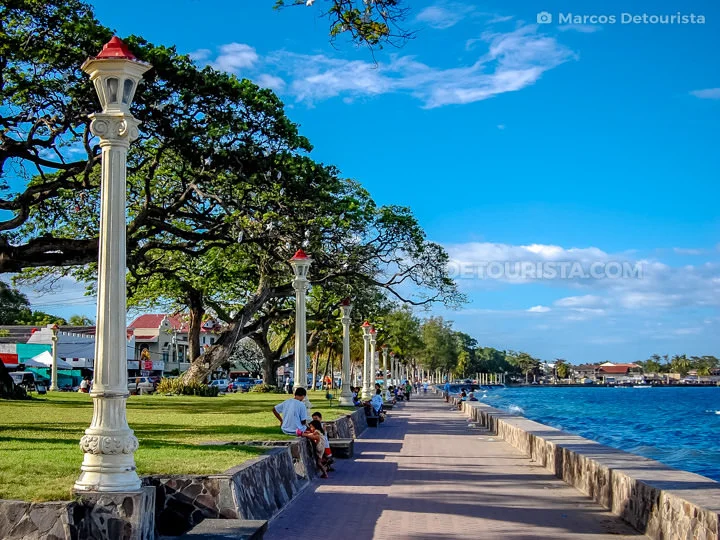Retirement is an excellent time of life because it allows you to relax and enjoy the fruits of your labor finally. While it may seem challenging, downsizing and simplifying your life can bring numerous benefits. Imagine a retirement living in a tropical paradise where you can live comfortably without worrying about your finances. Join the growing number of retirees choosing this destination as their go-to place. Discover the ultimate guide to downsizing and simplifying your life as you prepare to retire in the Philippines. Follow these tips and experience a simpler lifestyle, freedom, and peace of mind. Discover the essential steps to embark on your dream retirement adventure! We’ll guide you through finding the perfect living arrangements, creating a budget that fits your lifestyle, and staying active to ensure you make the most of your golden years. Don’t wait any longer to start planning for the retirement you deserve! Experience the ultimate retirement lifestyle in the Philippines! Take time to relax and learn about all the different ways you can spend your retirement in this beautiful country.
Assessing Your Needs and Wants
When decluttering and downsizing your possessions, remember to focus on keeping items that bring you joy and are essential to your daily life. Letting go of excess belongings can be liberating and create more space for the things that truly matter to you. As you approach retirement living, carefully consider your wants and needs for this new phase of life. Do you want to move to a smaller house, travel, or try new hobbies? Understanding your desires and priorities will help you make a retirement plan that aligns with your unique lifestyle goals.
Choosing the Right Living Arrangements
Retirement is exciting, but choosing suitable living arrangements is crucial. The options are unlimited, from home to tropical retirement communities in the Philippines. Each alternative offers retirees different perks and drawbacks. Exploring Philippine retirement villages with stunning beaches, excellent hospitality, and rich culture may be thrilling. Consider location, amenities, price, and healthcare access while choosing a retirement home. Whether you like the peace of your home or the dynamic community of retirement living in the Philippines, the key is to carefully assess your alternatives and choose the best living arrangement for your retirement lifestyle.
Creating a Retirement Budget
Creating a retirement budget is an exhilarating endeavor that allows you to take charge of your financial future and embark on a new chapter of retirement living. With careful consideration of the cost of living in the Philippines, you can strategically plan for all the retirement expenses. From daily necessities to leisure activities, your retirement budget will be a roadmap for financial success. Additionally, as you prepare for retirement, it’s crucial to consider healthcare and other unexpected expenses, ensuring you have a safety net for any unforeseen circumstances. Proper budgeting allows you to live within your means and confidently enjoy your retirement without worrying about financial stress. So, whether you’re dreaming of serene beach getaways or embarking on new hobbies, following a well-crafted retirement budget will allow you to cherish each moment of your retirement living to the fullest.
Staying Connected and Active
Retirement living in the Philippines offers endless opportunities for staying connected and active. There’s always something to do and explore, from vibrant cultural festivals to picturesque beaches. Modern technology, video calls, and social media allow expats to keep in touch with loved ones back home and share special events with them. Moreover, joining local clubs and organizations provides ample opportunities for socializing and staying active. Retirees can build new connections and friendships, from joining a fitness class to participating in community events. The warm and welcoming Filipino culture makes it easy to make new friends and immerse oneself in the local community. Whether it’s bonding over delicious local cuisine or exploring the rich heritage of the Philippines, retirees can build a fulfilling retirement lifestyle that is both socially and physically engaging. With its stunning natural beauty and friendly locals, the Philippines offers a retirement living experience that is truly enriching and fulfilling.
When you reach retirement age, relaxing and making it easy for your life may bring you many benefits. The chance to live in the tropical paradise of the Philippines is an easy and cheap way. You will be able to start a satisfying and enlightening retirement trip if you take the time to consider your needs and preferences carefully. Choose an appropriate place to live, set up a retirement budget, and stay busy and connected. Take your time getting the early start you should have had. On getting ready for the retirement you so richly earned. In the Philippines, you can live the retired life of your dreams. At the same time, enjoy the warmth and natural beauty of one of the world’s most beautiful countries. Your dream retirement awaits!
Source: Retiringphilippines
Image Source: Retiringphilippines






